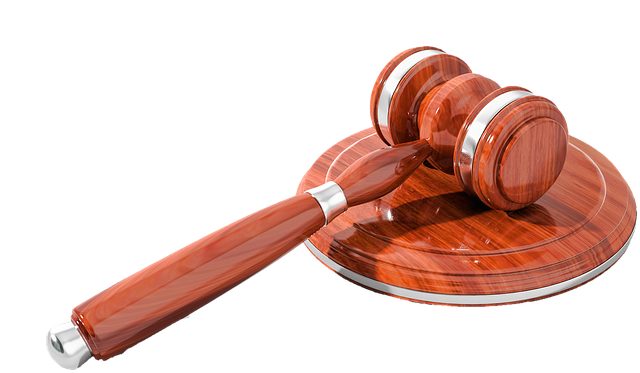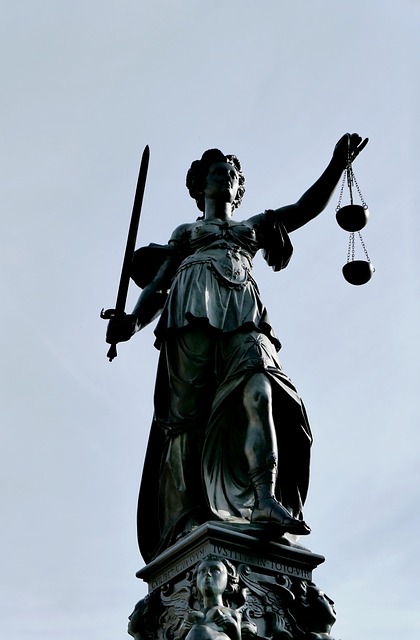Public corruption cases are complex legal matters centered on prosecutorial discretion, where powerful individuals' abuse of authority erodes public trust in democratic institutions. Key factors guiding prosecutorial decisions include evidence strength, community impact, and potential sentences, balancing misconduct severity against prosecution resources. The nature of corruption (government, corporate, or philanthropic) presents unique challenges and opportunities for justice. Prosecutors must ensure fairness, transparency, and strategic approaches to shape public perceptions of integrity in governance and business practices, considering factors like legal precedents, political pressure, and public perception.
“Public corruption charges are a complex web of legal and political dynamics, demanding meticulous navigation. This article delves into the intricate aspects of understanding public corruption from a legal standpoint, focusing on the role of prosecutors and their discretionary powers. We explore the key factors influencing prosecutorial discretion decisions in corruption cases, offering insights into strategies that can bolster law enforcement efforts. By examining these elements, we aim to illuminate paths toward more effective combat against public corruption.”
- Understanding Public Corruption Charges: A Legal Perspective
- The Role of Prosecutors and Their Discretionary Powers
- Key Factors Shaping Prosecutorial Decisions on Corruption Cases
- Strategies to Combat Public Corruption: Implications for Law Enforcement
Understanding Public Corruption Charges: A Legal Perspective

Public corruption charges are a complex legal issue that involves understanding the nuances of prosecutorial discretion. When individuals or entities in positions of power abuse their authority for personal gain, it shatters public trust and undermines democratic principles. From a legal perspective, these cases hinge on several factors that influence the decisions made by prosecutors. Key considerations include the strength of evidence, the impact on the community, and the potential sentences faced by the accused. These factors are crucial in determining whether to pursue charges, as they weigh the seriousness of the alleged misconduct against the resources invested in prosecution.
The process is further influenced by the nature of the corruption, whether it involves government officials, corporate entities, or individuals within philanthropic and political communities. Each case presents unique challenges and opportunities for justice. Prosecutors must navigate these complexities while ensuring fairness and transparency throughout the legal proceedings. The decisions they make can have profound implications, shaping public perceptions of integrity and accountability in governance and business practices.
The Role of Prosecutors and Their Discretionary Powers

Prosecutors play a pivotal role in public corruption cases, holding the power to shape the course of justice. Their discretion in deciding whether and how to charge individuals or entities is a complex process influenced by various factors. Key considerations include the strength of evidence, potential impact on victims and society at large, and the public interest.
The decisions made by prosecutors during all stages of the investigative and enforcement process—from initial investigation to trial—are crucial. They must weigh the merits of the case against the interests of their corporate and individual clients. This delicate balance ensures that justice is served fairly, while also protecting the rights of those accused. Factors influencing these discretionary powers include legal precedents, political pressure, and public perception, ultimately shaping the trajectory of corruption investigations and their outcomes.
Key Factors Shaping Prosecutorial Decisions on Corruption Cases

Several key factors shape prosecutorial decisions on corruption cases, which are intricate and sensitive in nature. These decisions are influenced by a complex interplay of legal considerations, public sentiment, and political pressures. Firstly, the strength of the evidence is paramount. Prosecutors must assess whether the available facts can lead to a compelling case that can withstand scrutiny at trial. This includes evaluating documents, witness statements, and any forensic or financial evidence. Secondly, the impact of the alleged corruption plays a significant role. Cases involving public officials who hold positions of power and trust may receive heightened attention from prosecutors and the public, as they undermine democratic institutions and the rule of law.
Additionally, the broader implications for the community are considered. Corruption cases can disrupt the fabric of philanthropic and political communities, eroding public faith in these entities. As such, prosecutors must balance the need to pursue justice with the potential consequences on these vital sectors. The strategy employed by a general criminal defense attorney in building a winning challenging defense verdict is also crucial; effective legal arguments and robust defenses can shape the prosecutor’s approach, leading to more favorable outcomes for all parties involved.
Strategies to Combat Public Corruption: Implications for Law Enforcement

To combat public corruption effectively, law enforcement must employ strategic approaches that consider various factors influencing prosecutorial discretion decisions. A key strategy involves strengthening transparency and accountability mechanisms within governmental structures. This includes implementing robust data analytics to identify patterns of corrupt behavior and establishing independent oversight bodies to review and monitor investigative processes. By promoting open access to information and ensuring rigorous scrutiny, the potential for corruption can be significantly reduced.
Additionally, focusing on prevention through education and awareness campaigns is paramount. Educating both the public and government officials about ethical conduct, conflict-of-interest regulations, and the severe consequences of corruption can act as a powerful deterrent. These measures, combined with strict enforcement of anti-corruption laws and policies, create an environment where public integrity is upheld, fostering a respective business climate that discourages unethical practices and promotes good governance.
Public corruption charges are complex, and understanding the factors influencing prosecutorial discretion decisions is crucial. From a legal perspective, these cases demand a balanced approach, considering not only the severity of the offense but also contextual elements. Key factors, such as evidence strength, political implications, and prior convictions, play a significant role in shaping prosecutorial strategies. Effective combat against public corruption requires a multifaceted approach, including enhanced law enforcement, transparent procedures, and robust ethical guidelines for prosecutors. By examining these influences and implementing strategic responses, society can work towards a more accountable and transparent governance system.






